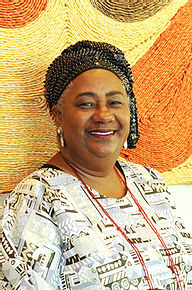Barbara Love Advises Community Safety Working Group On Implicit Bias Training

Professor Barbara Love. Photo: barbarajlove.com
Barbara Love, UMass Professor Emeritus of Education, spoke to the Community Safety Working Group at its meeting on Wednesday, February 17 about the limitations of Implicit Bias Training (IBT). She is the first of several speakers that the CSWG hopes to hear from before finishing their report to the Town Manager in March. Prior to her retirement from UMass, Love was a Professor in the Social Justice Education Program in the School of Education. She currently works as a consultant, coach, author, lecturer, climate change activist, and personal and organizational transformation specialist.
Love cautioned the group that the field of IBT is unregulated, with no certification process or standard curriculum, and that trainers vary significantly in experience and expertise. In considering training, she said, it is important to ask precisely what kind of training is offered and who is delivering it. Trainings can range from a half-hour to 40 hours, but are usually about 8 hours, she said, which is not enough time to change deeply internalized ideas and behaviors. Most people receiving training haven’t even had previous opportunities to learn about structural inequalities.
Most training about bias employs a cognitive approach, she said, grounded in sharing information. But information is not enough. She gave the example of anti-smoking campaigns. People have the information that smoking is deadly but that doesn’t change their behavior. Similarly, most trainings that rely simply on transmitting information are not enough to change behavior. People need a chance to heal before they can change deeply internalized behavioral patterns and attitudes about racial equity. Training has to happen in a context of a “liberatory vision,” not in a vacuum. There has to be some context about accountability and community expectations.
She asked the CSWG, “What is your vision about how to reduce White supremacy in Amherst?” That vision, she said, should set the context for what the group does next. She offered the following recommendations:
1. Have a vision that you can dismantle White supremacy in Amherst.
2. Engage the Town in a visioning process about dismantling White supremacy. What would that look like? To do that, participants have to learn about how White supremacy is manifest here. The process has to include everyone, people across all sectors of the community. And it should use multiple methods to maximize involvement, such as dialogue groups, listening sessions, healing sessions, as well as training. It isn’t enough to send out notices, she said. It will take serious organizing to get people involved.
3. Set goals that include specific recommendations for implementing the vision. A townwide project centered on making a model community that is anti-racist would be an amazing goal, she said.
4. Eschew binary thinking. It isn’t enough to say that the police shouldn’t do mental health interventions, youth work, or other social services. They have to be specific: Who should do this work, if not the police?
She closed by reminding the CSWG members of the national context of their work, a context in which a George Floyd-themed Valentine saying, “You take my breath away” was circulated in the Los Angeles Police Department and in which Senate Majority Leader Mitch McConnell voted to acquit Donald Trump of charges at his impeachment trial and then acknowledged that Trump was unequivocally guilty of them.
“You are trying to do something that will make Amherst different,” she reminded them. “If you’re going to do training, you should specify, ‘What should the curriculum include? What should be the credentials of the trainers? What kinds of experience should they have? Who are the people in the community whose voices must be represented at the table in developing this project?’”
She noted that the Town of Amherst used to have a staff liaison to the Cambodian community but no longer does. “You need to ask, ‘How do people in that community connect with the town, with the government?’” and urged them to think about specifics of what they want so that they can create a better town and a better world.

Nice one Art.
We may start to move beyond ‘a fashion statement’ (“I got a BLM poster on my lawn”) to one in which people are not just thought and treated equally but specific actions are made to change policy, ‘bring up’ those who are currently disenfranchised, power is shared and competition does not mean one over the other. May that day, long coming (hundreds of years) arrive soon as we all benefit from changed minds and broadly based community !
Chad Fuller